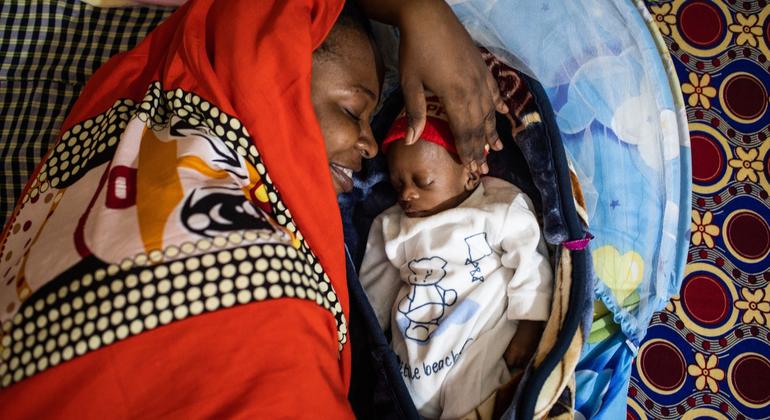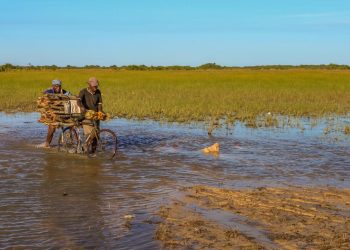The advice marks a significant departure from earlier practice, reflecting the immense health benefits of ensuring caregivers – generally mothers – and preterm or small babies, can stay close after birth, without any separation.
WHO recommends that skin to skin contact, also known as “kangaroo mother care”, should begin immediately after these little ones take their first breath, without any initial period in an incubator.
Tiny gamechangers
“Preterm babies can survive, thrive, and change the world – but each baby must be given that chance,” said Tedros Adhanom Ghebreyesus, the WHO Director-General.
“These guidelines show that improving outcomes for these tiny babies is not always about providing the most high-tech solutions, but rather ensuring access to essential healthcare that is centred around the needs of families.”
The guidelines were released ahead of World Prematurity Day, observed annually on 17 November.
They also provide recommendations to ensure emotional, financial and workplace support for families, who can face extraordinary stress and hardship because of intensive caregiving demands and anxieties around their babies’ health.
Public health concern
Each year, an estimated 15 million babies worldwide are born preterm, meaning before the 37th week of pregnancy, or roughly one in 10 of all births. Even more, 20 million, have a low birthweight, under 2.5 kg.
Numbers are rising, WHO reported, making prematurity the leading cause of death of children under five, and an urgent public health issue.
When it comes to survival, significant disparities exist depending on where premature babies are born. Whereas most born at or after 28 weeks in richer countries go on to survive, the rate in poorer countries can be as low as 10 per cent.
Saving more lives
WHO said most preterm babies can be saved through cost-effective measures such as quality care before, during and after childbirth; prevention and management of common infections, and kangaroo mother care.
The practice combines skin to skin contact in a special sling or wrap that is worn for as many hours as possible, and exclusive breastfeeding.
Preterm babies lack body fat, so many have problems regulating their own temperature when they are born, and they often require medical assistance with breathing.
Previous recommendations called for these babies to first be stabilized in an incubator or warmer, for around three to seven days on average, representing an initial separation from their primary caregiver.
First embrace critical
However, WHO said research now shows that starting kangaroo mother care immediately after birth saves many more lives, reduces infections and hypothermia, and improves feeding.
For premature and small babies, the first embrace with a parent is not only emotionally important, but also absolutely critical for their survival and health, said Dr. Karen Edmond, Medical Officer for Newborn Health at WHO.
COVID separations, ‘catastrophic’
“Through COVID-19 times, we know that many women were unnecessarily separated from their babies, which could be catastrophic for the health of babies born early or small,” she recalled.
“These new guidelines stress the need to provide care for families and preterm babies together as a unit, and ensure parents get the best possible support through what is often a uniquely stressful and anxious time.”
Breastmilk is best
The guidelines also strongly recommend breastfeeding to improve health outcomes for premature and low birthweight babies, because it reduces infection risks when compared to infant formula.
Donor milk is the next best alternative, if mother’s milk is not available, though fortified “preterm formula” may be used if donor milk banks are not accessible.



